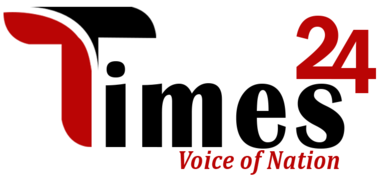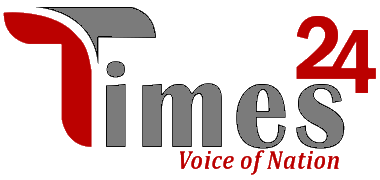Iraq’s top Shia cleric, Ayatollah Ali Sistani, last month involved the disbanding of all militias. this is able to involve the state disarming the pro-Iran Popular Mobilization Units (PMU). In turn, this is able to neuter Tehran’s most reliable partner in Iraq, Kataeb Hezbollah, the foremost dangerous alternative to state power within the country. Such then is that the importance to the integrity of the Iraqi state of Sistani’s call. Indeed, the prime minister, now provided cover by the religious leadership within the Shia centre of Najaf, should act with haste. Yet, all we’ve witnessed so far is an exhibition of inertia.
Kataeb Hezbollah – the Brigades of the Party of God, if you’ll – has been busy building a “statelet” within Iraq. If the govt doesn’t act quickly, Kataeb Hezbollah soon will become stronger than the Iraqi state itself; it’ll dominate Iraq within the manner during which its namesake, Hezbollah, does in Lebanon and seal Iraq’s slide into failure as a client state of Iran.
For those unacquainted Iraq’s recent history of distressing politics, a touch elucidation could be helpful.
Modelled after Lebanon’s Hezbollah, Kataeb Hezbollah is that the spine that stands up the PMU. It controls, importantly, the PMU’s “internal security” unit, the intelligence operations that keep tabs on fighters and discipline rogue ones. Kataeb Hezbollah’s chief, Abdul-Aziz Al-Muhammadawi, is also the effective leader of the PMU, rather than its titular chairman, Falih Al-Fayyahd.
It isn’t hyperbole to explain Kakaeb Hezbollah as a statelet. It controls territory within Iraq’s borders. Kataeb Hezbollah managed to force Baghdad to lease it vast amounts of agricultural land in Jurf Al-Sakhr, south of Baghdad, and on the Iraqi border with Syria. It operates these territories as fiefs into which it prohibits access by the legitimate state. At its bases, Kataeb Hezbollah trains and garrisons its fighters, and stocks caches of arms. Western intelligence reports suggest that, with Iranian assistance, Kataeb Hezbollah manufactures precision-guided missiles at these sites.
Like Lebanon’s Hezbollah, Kataeb Hezbollah’s fighting wing is merely one component of the mini-state. It maintains welfare organizations for the families of its fighters, including those that die in battle. These organizations offer medical aid , schooling, housing, social and support , and non secular indoctrination.
It is the last item that’s particularly important. Traditionally, Shia Islam enjoins its followers to pledge allegiance to their rulers, and defer only to clerics on problems with faith. If any Shiite should feel that the planet is unfair to him, he would look to the Second Coming of the Twelfth Imam, Muhammad Al-Mahdi, to redress the injustice. Shia Muslims believe that Al-Mahdi has been alive since the 9th century when his Occultation – or “hiddenness” – occurred.
But influenced by the founders of the (ironically Sunni) Muslim Brotherhood, the late Khomeini constructed a Shia version of political Islam during which Shia Muslims are alleged to pledge allegiance to their state leaders, who deputize on behalf of Al-Mahdi until the imam’s return. Tehran, of course, sees itself because the metropolitan and political centre for all Shia Muslims.
Sistani and traditional Shia Muslims reject Khomeini’s reinvention of Shia doctrine, which also has limited appeal among Iraqi Shia adherents – except Iran-indoctrinated militia members.
Now, with the religious leadership in Najaf speaking out against the pro-Iran militias, and growing anti-Iran sentiment within the country, the legitimate state has a chance to reassert its sovereignty. The prime minister, Mustafa Al-Kadhimi, can even calculate international assistance in defeating Kataeb Hezbollah, which Washington has placed on its list of foreign terrorist organizations. Any US administration, whether Republican or Democratic, would be quite willing to assist Baghdad put down Iran’s proxies.
A month later, however, Al-Kadhimi has made no move. it’s a puzzle; nobody knows why. Maybe there are some so far unrevealed political calculations. Or perhaps he simply fears for his life. regardless of the reason, Al-Kadhimi surely must realise that point is of the essence. So either he takes the chance to neuter Kataeb Hezbollah and other Iranian proxies, or he gets out of the way and lets somebody else roll in the hay .
For indeed, he should appreciate that doing nothing only diminishes his own power, as Kataeb Hezbollah and therefore the other Iranian proxies it leads keep it up constructing an alternate state power to Baghdad. to feature insult to injury, Tehran has managed even to force successive Iraqi governments to fund the PMU’s payroll, in effect getting Baghdad to subsidize the expansion of Tehran’s influence and therefore the diminution of Baghdad’s authority. And if Hezbollah in Lebanon is any example, once Kataeb Hezbollah is firmly and indubitably entrenched as a shadow state, it’ll be near impossible to dismantle.
With Iran cash-poor due to renewed US sanctions and weakened by domestic crisis, Al-Kadhimi has a chance on his side: he should cash in of it and take away the cancer of Iran’s militias that’s erosion at the sovereignty of his government. Should he not, an eventually resurgent Iran will come after Al-Kadhimi and the other leader of the legitimately constituted state. If recent history is any guide, the foremost disposable figure within the Iraqi state is that the prime minister.






